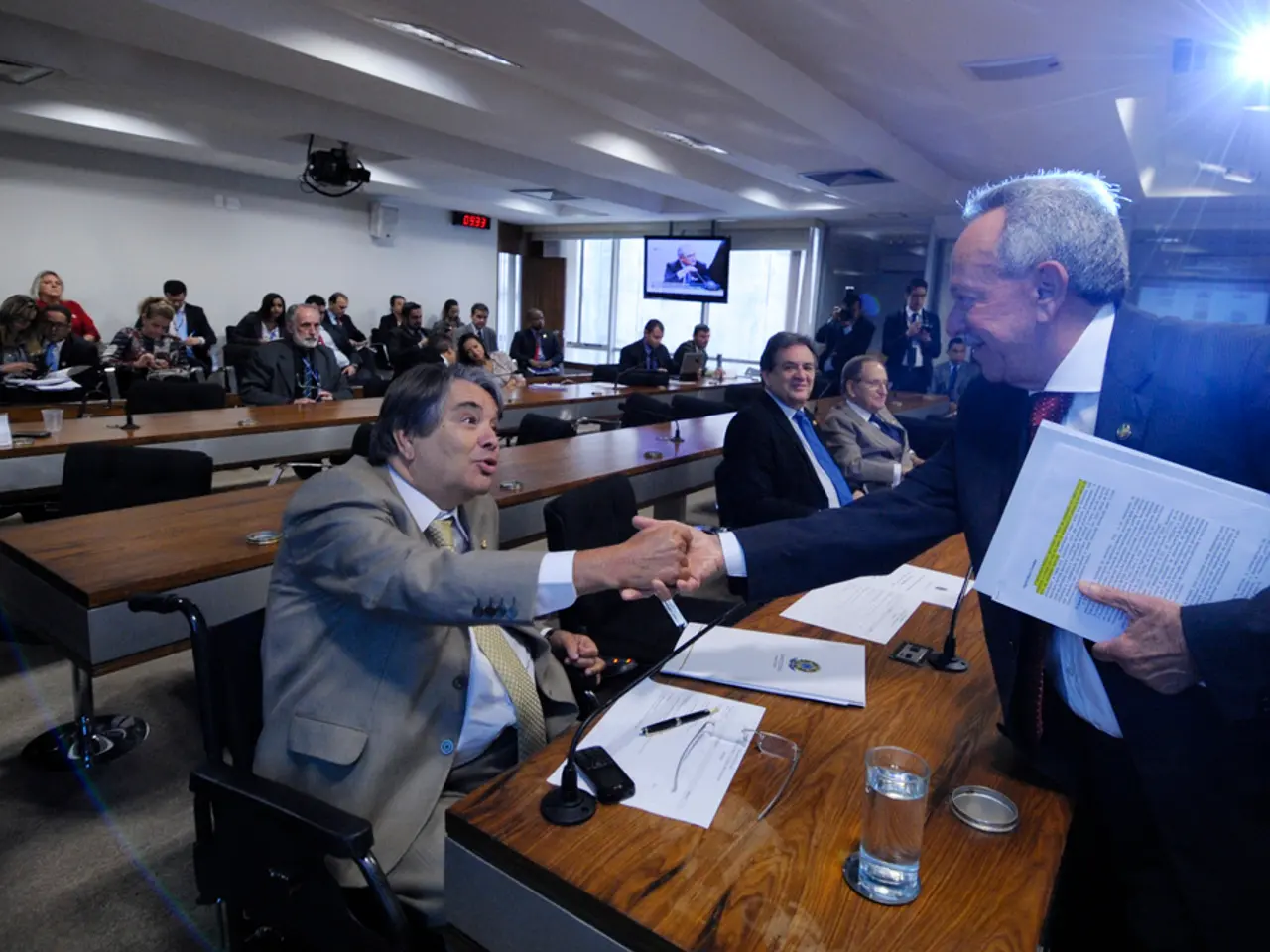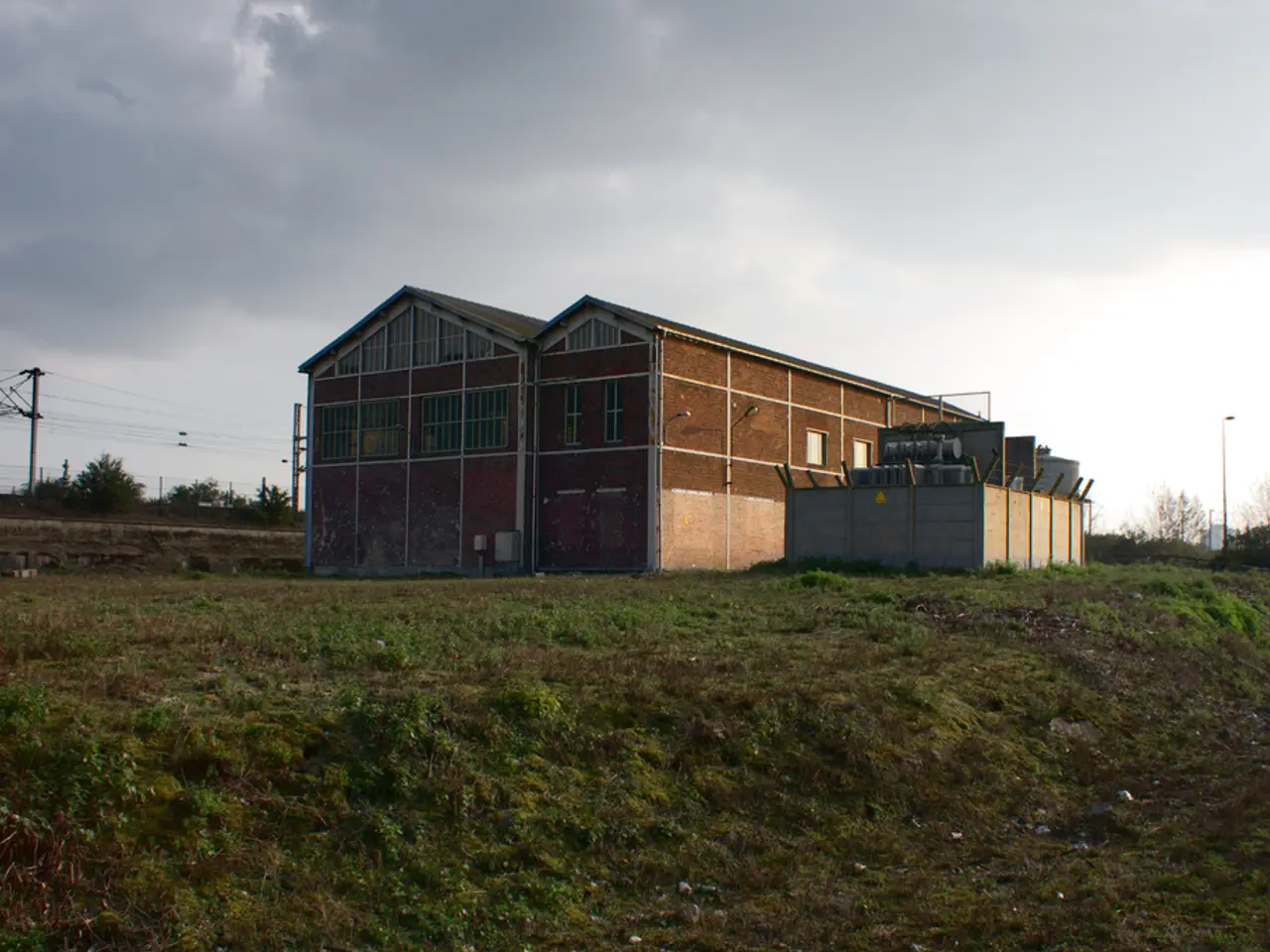Potential Gaza truce plan could provide a momentary respite - yet falls short of paving a road to lasting harmony
After weeks of escalating violence in Gaza, there is a glimmer of hope as Hamas has submitted a "positive response" to the U.S.-brokered 60-day ceasefire deal [1][2][3][5]. The agreement includes the phased release of hostages and bodies over the course of the ceasefire period. Hamas is also ready to immediately begin proximity talks with Israel to work out the implementation details of the agreement [2][3].
The ceasefire proposal, which has been brokered by the U.S., with Qatar and Egypt acting as mediators [1][3], offers a temporary respite from the conflict that has lasted for over two years. Former U.S. President Donald Trump announced the proposal, urging Hamas to accept it to avoid worsening the conflict [1][3].
However, several issues remain unresolved, especially the terms on prisoner exchanges and guarantees against war resumption. Hamas demands a clearer guarantee that negotiations on a permanent ceasefire will continue beyond the initial 60-day ceasefire period until a final agreement is reached [2][4]. They also insist on no public ceremonies for the hostage releases and have reservations on core issues, including concerns about the flow of humanitarian aid, the use of the Rafah crossing into Egypt, and the timeline for Israeli troop withdrawal [3].
Israel, under Prime Minister Benjamin Netanyahu, has agreed to the 60-day temporary ceasefire but has not agreed to a permanent end to the war, a key sticking point in negotiations [1][4]. Israel is concerned that dropping the "good faith" clause in ceasefire extensions could allow Hamas to indefinitely delay reaching a permanent peace [2].
The fighting has escalated despite Trump's announcement, with Israeli military spokesperson Avichay Adraee announcing renewed operations in northern Gaza, aiming to eliminate "terrorists and terrorist infrastructure" [1]. Israeli officials have openly discussed annexing parts of Gaza and "conquering" the territory, drawing global condemnation and renewed calls to end arms sales and military aid to Israel [1].
As negotiations continue, both sides appear willing to negotiate, but the fundamental divide over the war's permanent end persists [1][2][4]. Israel has insisted on the disarmament or exile of the Hamas leadership as a non-negotiable demand, raising doubts about the proposal's potential to deliver lasting peace.
References: [1] Reuters. (2022, June 22). Hamas accepts 60-day Gaza truce deal, but key hurdles remain. Retrieved from https://www.reuters.com/world/middle-east/hamas-accepts-60-day-gaza-truce-deal-key-hurdles-remain-2022-06-22/ [2] Al Jazeera. (2022, June 22). Hamas accepts 60-day Gaza truce deal. Retrieved from https://www.aljazeera.com/news/2022/6/22/hamas-accepts-60-day-gaza-truce-deal [3] BBC News. (2022, June 22). Gaza truce: Hamas accepts 60-day ceasefire deal. Retrieved from https://www.bbc.com/news/world-middle-east-61931567 [4] The New York Times. (2022, June 22). Hamas Accepts 60-Day Cease-Fire in Gaza. Retrieved from https://www.nytimes.com/2022/06/22/world/middleeast/gaza-truce-hamas.html [5] The Washington Post. (2022, June 22). Hamas accepts 60-day cease-fire in Gaza, signaling a possible end to the conflict. Retrieved from https://www.washingtonpost.com/world/2022/06/22/gaza-israel-ceasefire-hamas/
- The world watches as the Middle East, specifically Arabia, sees a fragile glimmer of health in the form of a 60-day ceasefire deal between Israel and Hamas.
- Amidst the general-news of the ceasefire, details reveal unresolved issues, particularly in prisoner exchanges and guarantees against war resumption.
- Despite these issues, the news suggests that both Israel and Hamas appear ready for negotiations, with East Asia's former President Donald Trump urging Hamas to accept the deal to avoid further crime.
- As travel to the region remains challenging due to the conflict, artists from around the world offer prayers and hope for a peaceful resolution, focusing their art on the themes of peace and unity.
- However, the fundamental divide over the war's permanent end persists, with Israel insisting on disarmament or exile of the Hamas leadership, a demand that raises doubts about the deal's potential to bring lasting health to the region.
- Meanwhile, the world continues to discuss the politics of the Middle East, with international leaders and organizations expressing concerns over humanitarian aid, the use of crossings, and the timeline for troop withdrawal, all crucial components for a long-lasting peace in the region.








